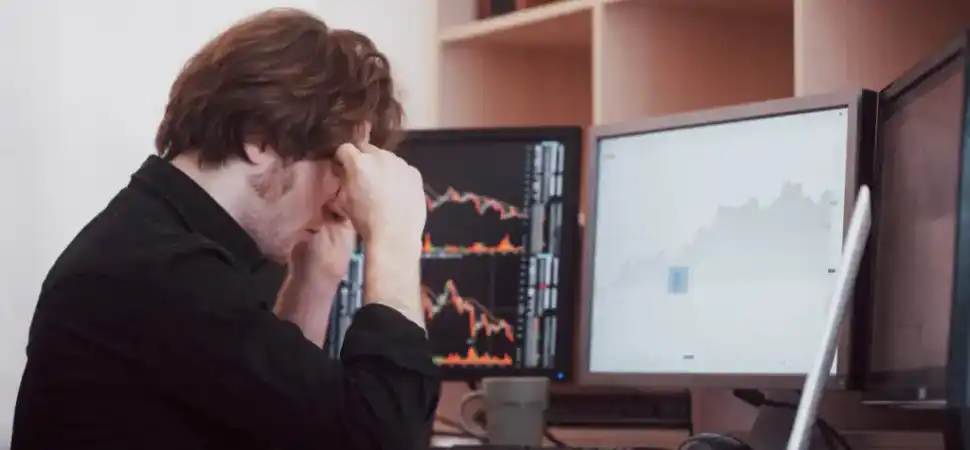08.08.2024
Евгений Лебедев
273

The world of Forex trading is full of opportunities but also pitfalls, especially for beginners. Success in this market requires not only knowledge and experience, but also the ability to avoid common mistakes that can cost you capital and confidence. We will share with you the most common mistakes that you should avoid to increase your chances of success.
Neglecting training
Forex trading is a separate profession, and as with all professions, the first step is learning. Many beginners think that to trade it will be enough just to open a trading account and read a few daily analyses. A common mistake is the desire to get started as soon as possible without taking the time to learn or at least get the information.
To remedy this situation, there are many specialised trading books and courses available, which is a necessary step for anyone who wants to trade Forex. There are certain rules and knowledge that can only be obtained by taking a course from a professional. Neglecting this step is like going on a round-the-world trip with a flat tyre. You may make a little progress, but it won't last long.
Willingness to invest in all currency pairs
Diversification is a great strategy for the prudent investor. However, if you are new to Forex trading, trying to keep track of all currency pairs and the news associated with each can be extremely difficult. Each currency pair has its own unique parameters and reacts to events in its own way. Even under the same conditions, two different currency pairs can behave completely differently. To avoid confusion and increase the chances of successful trading, it is best to start by focusing on one currency pair.
Not understanding the benefits of a stop loss
Setting a stop loss correctly is not an easy task, because often even if the market direction is correct, a novice trader can suffer losses due to an incorrectly placed instrument. As a result, many beginners decide not to use stop losses at all. However, trading without a stop loss will sooner or later lead to significant losses. This is a common mistake due to which many traders lose their accounts when faced with a margin call. Therefore, it is extremely important to always set a stop loss on every market position. If you don't know how to do this correctly, there are many training courses, both paid and free, that will help you learn this important technique.
Failure to apply money management rules
Some beginners are not shocked to find themselves risking 15 or 20% of their capital on a trade. However, the cardinal rule of money management is: never risk more than 1-2% of your account per trade. Even if you have a great trading strategy, failing to follow the rules of sound risk management can significantly increase the likelihood of bankruptcy. Proper money management involves frequent small losses and occasional large profits. This is the way a trader seeking long-term stability and success in the market should act.
Accumulation of losses
A common mistake among traders is to accumulate losing positions without wanting to close them. It is not easy to recognise your mistakes and cut losses. There is an opinion that as long as a position remains open, the loss is not real. However, a hidden loss is still a real loss at the moment. In most cases it is better to cut a losing position as early as possible, because the bigger the loss, the harder it will be to decide to close the trade. Making timely decisions to cut losses can significantly improve your long-term performance in the market.

Reducing the average value
When the market is falling precipitously, it may seem logical to double down on your position to reduce your cost basis. There is some mathematical logic in this reasoning, but a trader who averages down makes two fundamental mistakes: he hopes that an unfavourable situation will become favourable again, and he believes that the price level reached in the past will inevitably be reached again in the near future.
Imagine those who bought EUR/USD at 1.60, confident that the next targets would be 1.80 and 2.00. Did they reach 1.55 on average? Now take a look at the EUR/USD chart. The 1.60 level may be reached in the future, but when? Will traders have enough margin to sustain such losses? Doubling positions when the market is falling is a risky strategy that can lead to significant losses and rapid capital depletion.
Cutting profits too quickly
After a period of losses and stress, some traders lock in small profits too soon. As soon as the balance becomes positive, the trade is immediately closed. It is often seen that novice traders suffer losses of 800 euros, and when a small profit of 5 euros appears, they immediately close the position, happy that they are no longer at a loss. However, this approach will not lead to success. You should aim to win at least three trades for every two risky ones. This is the only way to achieve stable capital growth and avoid the constant fluctuation between small profits and big losses.
Neglecting the influence of the spread
It may seem that a difference of one pip of the spread is insignificant. This is true if you make only one or two trades. However, if you trade twice a day for a year, this difference grows to 520 pips. With 5:1 leverage, this could mean a 26% change in your bottom line. Thus, a strategy that is profitable at a spread of 1.5 pips can become unprofitable at a spread of 2.5 pips. It is important to consider every detail in trading, because even the smallest changes can significantly affect your overall result and lead to unwanted losses.
Impatience
When trading Forex, you need to be patient. You should look for the right opportunity, wait for market conditions to become favourable for your strategy and only then act. However, beginners often make the mistake of opening positions without following predetermined plans or strategies. This is because actively participating in the market seems much more interesting than passively watching it unfold. Nevertheless, it is important to be strict with yourself and follow your trading plan. This is the only way to avoid impulsive decisions and increase the chances of success in the long run.
Searching for miracle methods
Unfortunately, there is no miracle method or infallible martingale that guarantees success in the financial markets. Many beginners come to the market with the hope of easy profits, thinking that it is possible to make money without leaving the house and without putting in much effort. Of course, it is possible to achieve good results in the currency market, but there are no easy paths to riches, just as there is no goose that lays golden eggs.
Conclusion
The key to success in trading lies in understanding the market and constant self-improvement. The path to financial independence and stability in Forex requires discipline, knowledge and endurance. Remember that every step aimed at improving your trading strategy and realising market patterns brings you closer to achieving your goals. Perseverance, diligence and willingness to learn from your mistakes will be your main allies on the way to success in the world of currency trading.
